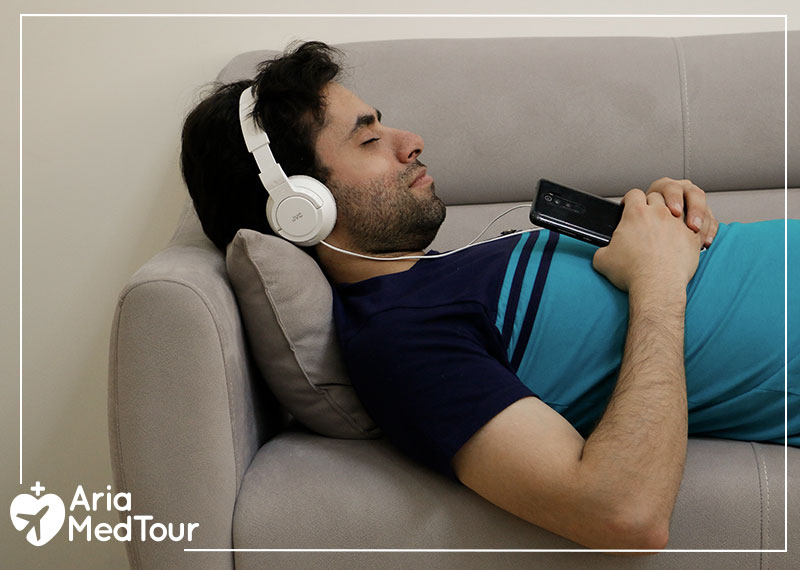Although surgical procedures have become less dangerous and more successful than ever, preoperative anxiety and stress have remained unchanged. This stress and anxiety are usually related to previous surgical experiences, both psychological and somatic, that affect a person’s unconsciousness. This type of anxiety is caused by a feeling of threat and danger in the patient’s mind and affects its ability to comprehend and make proper decisions.
If you have pre-surgical anxiety and it makes you hesitant about your decision, especially a plastic or cosmetic surgery, read this article to make the best decision and ease your mind before undergoing an operation.
Why is it so important to control preoperative anxiety?
Tens of millions of patients around the world undergo surgery every year. This is a very common topic these days. For instance, hundreds of patients undergo cosmetic surgery in Iran every day and are satisfied with the result and process of the operation. Thus, cosmetic surgery is now more common than ever. Nevertheless, for many people, surgery equals stress, which produces physiological and psychological reactions (anxiety and fear).
In fact, entering the hospital and surgical centers itself subconsciously causes a little stress. However, fear of anesthesia is one of the issues that patients are most afraid of which usually takes less than a few minutes. In the past, anesthetics were used with greater risk and side effects. But today, with the advancement of medical science and the use of new drugs, anesthesia is safe and secure. Nevertheless, most patients get nervous when it comes to anesthesia and this sensation has a direct impact on the operation.
Fear of surgery can have side effects on the operation as well. Stress may cause physical symptoms such as insomnia, which in turn makes anxiety worse. Many patients with severe anxiety refuse or delay surgery, even if it is harmful to their health. Regardless of the cause of this anxiety, it is very important to help the patient overcome it, so that his/her health is not at risk.
What is Tomophobia?
Many questions arise in your mind when you decide to have surgery, especially a cosmetic one. Will you be satisfied with the results or not? How can you be sure that the outcome will be what you expect? What are the risks of general anesthesia? Or what are the risks and possible complications of having the operation? These questions usually result in pre-surgical anxiety.
Any situation involving surgery can cause anxiety and stress, and this is somewhat normal. Patients may be mildly or moderately anxious before undergoing any form of surgery. In cases where there is such great anxiety regarding the surgical procedure that the patient manifests severe symptoms, it is called Tomophobia. It could develop from Latrophobia (an irrational fear of doctors), also known as “White Coat Syndrome”.
Tomophobia symptoms may include:
- Feeling of discomfort in the digestive tract
- Numbness in hands and feet
- Body Trembling
- Excessive sweating
- Fainting
- Abnormal heartbeat
- Shortness of breath
- Chest tightness
- Insomnia
According to the results of a study, anxiety before surgery can be minimized by identifying the factors causing it and eliminating them. As a result, it is highly suggested that different methods should be employed to educate patients and determine a well-written educational program in order to eliminate the factors causing anxiety.
What factors cause pre-operative anxiety?
The extent of anxiety levels varies from person to person and depends on age, gender, marital status, and education. There are uncountable reasons why someone may be afraid of surgery. The most common reasons are “fear of the unknown” and “fear of death”.

The extent of anxiety levels varies from person to person and depends on age, gender, marital status, and education.
Here are some other reasons for preoperative anxiety:
Fear of surgical complications
All surgeries have potential side effects that concern patients. Having little or no information about the causes of these aftereffects may lead to pre surgery anxiety. On the other hand, having adequate information and following the doctor’s recommendations before and after surgery can reduce the risk of these complications. Choosing a reliable surgeon is also an important factor in a successful operation.
Fear of pain (algophobia) during and after surgery
Fear of surgical pain is one of the main factors that cause tension before an operation. Since the surgical procedure is done under general anesthesia, you will not feel any pain during the surgery. However, it is perfectly normal to feel a little numb and in pain after the operation. The severity of pain varies from person to person and is determined by the type of surgery performed. It is possible to use painkillers after regaining consciousness.
Fear of anesthesia
Today, with the advancement of medical science, the risk of anesthesia is greatly reduced and the effects of anesthesia are very low in people who have general health. The patients’ medical history is thoroughly reviewed by a surgeon before operation and all aspects of the surgery are evaluated. Therefore, the patient can enter the operating room without any fear.
Other factors
Other factors associated with pre-operative anxiety are:
- Unsuccessful recovery
- Strange environment
- Previous hospital experiences
How to overcome pre-surgical anxiety?
The main question is how can preoperative stress be reduced or controlled? The following instructions will help you:
Know more about the operation
The more you know about the procedure, the easier the surgery will get. Pay close attention to the surgery’s success rates and why you need to do the surgery.
Consult your surgeon about your concerns
One of the causes of stress is the patient’s lack of knowledge about the surgical procedure and incorrect information provided by others. Therefore, asking your surgeon for information may help reduce stress before surgery.
You may have questions about the surgery you want to do that has caused you fear and anxiety. For example, is it possible that the operating conditions turn out wrong? It is the surgeon’s job to do whatever it takes to reduce your stress.
Use the visualization method
This method helps you to be mentally prepared for the surgical process. You can create a positive vision by imagining how relieving it will be after the operation or all the good things that can be done after you get better.
Do relaxation techniques
Preoperative fear and worry may affect your sleep at night. Therefore, you have to look for a way to stay calm, because it affects both your mental and physical health.
Here is a list of exercises that will definitely make you feel relaxed:
- Yoga
- Deep breathing
- Meditation
- Hypnosis
- Massage
- Tai Chi (Tai Chi is a Chinese martial sport based on soft martial movements and is known as dynamic meditation because of its effect on relaxation.)
- Acupuncture
Think positive
One of the best ways to reduce the stress of surgery is to think positively about the outcome. Many people who suffer from preoperative anxiety think that the result of the operation may not be the same as what they have in mind. But do not worry about that. Because if you have taken the time to find the best surgeon and you are completely confident in his/her skills, ability, and background, you should not worry about anything and only trust them.
An experienced surgeon tries his/her best to keep the final result as close as possible to what you want while maintaining and even improving the function of the target organs. You should, however, have realistic expectations of the surgery.
Prepare your body for the surgery
Your surgeon has probably given you a checklist of what must be done before surgery. Do not forget to do whatever necessary to get ready for the operation. Start with eating healthy, getting enough rest, and exercising.
Listen to music or read a book
You can listen to whatever type of music you like, but the music must make you feel relaxed rather than energetic. A book can do the same for a bookworm.
Trust your surgeon
Finally, yet importantly, activities may serve as great distractions from your fears, but there is nothing better than having trust in your physicians. The surgeon’s recommendations must be strictly followed during preoperative preparation. The surgeon provides the patient with complete information during the consultation to ensure that he or she is willing to operate and can follow the recommendations. The patient can then make an informed and fearless decision about the operation.
The patient is required to make temporary lifestyle changes and carefully follow the surgeon’s recommendations for preoperative preparation and postoperative care a few weeks before and after surgery.
























